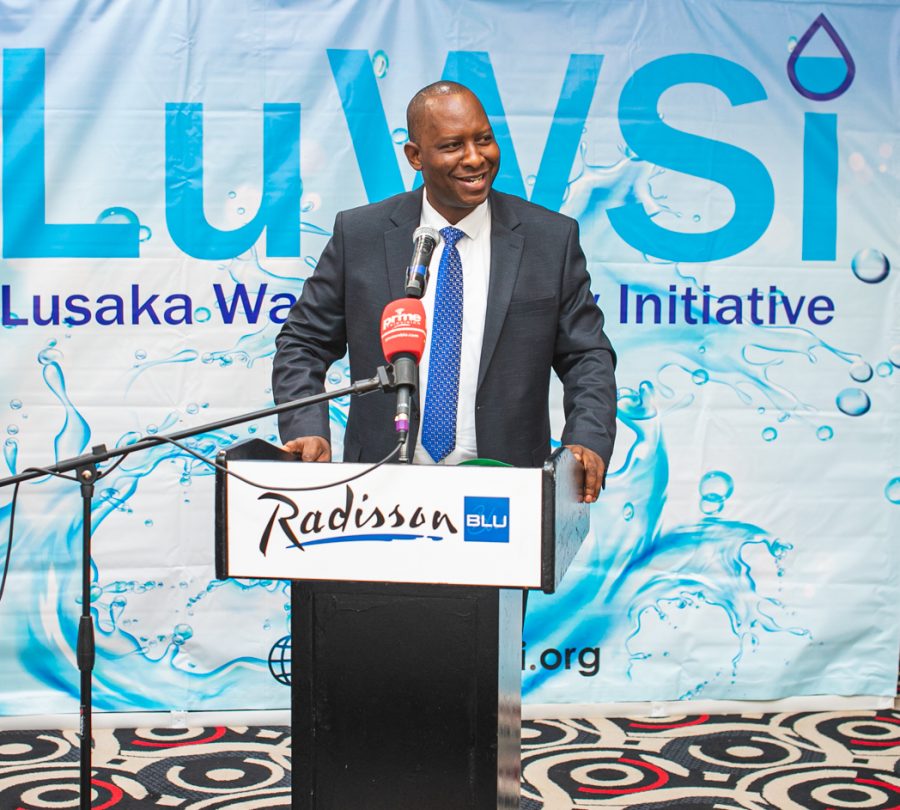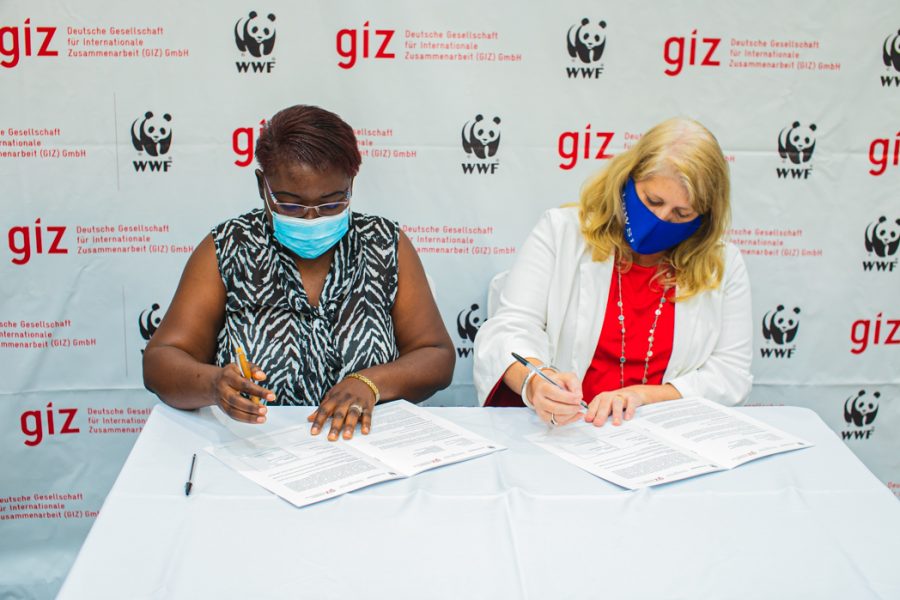Strengthening Collaboration: LuWSI CEO Breakfast and partnership signing event in Lusaka
Water crises are one of the major global risks for the coming decade, ranked third to have the strongest impact on economies and societies alike (Global Risks Report, 2020). But what does this mean for businesses in Zambia?
Across much of the country, factories, mines, farms, and industries are noticing how water stress is hitting their bottom lines and jeopardizing their business models. Lusaka is particularly under threat as groundwater becomes more polluted and depleted, and plans are drawn up for the use of water from the Kafue River.
Responding to this, the Lusaka Water Security Initiative (LuWSI) hosted a CEO breakfast on Wednesday, November 24th. This event, supported by NatuReS Zambia and WWF Zambia, brought together industry representatives, the Mayor of Lusaka, Her Worship Ms Chilando Chitangala, and the Guest of Honour, Zambia’s Minister of Water, Development and Sanitation, Hon. Mike Mposha MP. They discussed how Lusaka’s water challenges can be addressed to the benefit of the city’s economy and its citizens. The Minister emphasized the importance of water security and the need to ensure the protection of the country’s natural resources.

Copyright: LuWSI
In the spirit of partnerships as promoted by LuWSI, WWF Zambia and GIZ Zambia’s Water and Energy Cluster signed a relationship agreement as part of the event. The agreement aims to strengthen the cooperation between WWF and GIZ on the protection of Zambia’s natural resources and the implementation of green principles, such as supporting LuWSI to protect and enhance water security in Zambia’s capital. It also offers new prospects for a distinctive relationship between the two parties on the following;
● Water security: Develop a long term strategy for Lusaka’s water security.
● Private sector engagement: Identify and concretise areas of joint action through a clearly defined strategic plan.
● Project portfolio development: Facilitate the development of bankable projects, nature-based solutions, and city resilience initiatives.

Copyright: LuWSI
The signing of the relationship agreement comes at a time when there is an urgency for increased action towards natural resources management and stewardship, as Zambia’s natural assets are threatened by degradation and extinction. This brings a heightened need for collaborations such as these for collective and impactful action.
Author: Sonile Mutafya, NatuReS Advisor Zambia